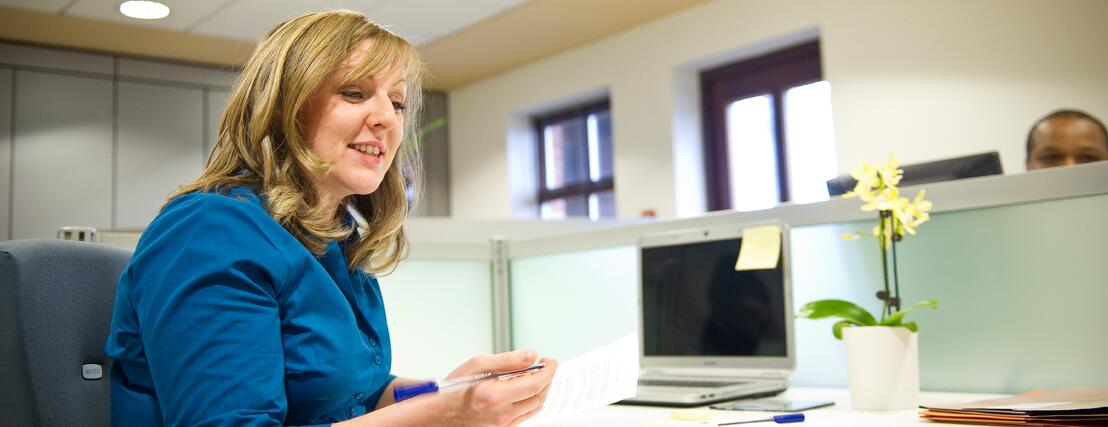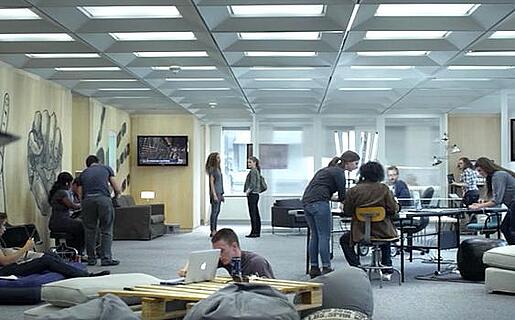
“Would you like a coffee?” “What's your opinion on the Ukraine crisis?” “Would you collate this information as an info graphic or on a tradition pie chart?” “Do you fancy coming for a drink this evening?”
I love interacting with people on a daily basis. I love the community of the office. In fact, I know that working alone and having a professional environment would be really difficult for me.
Would you miss the repartee, co-worker 'loyalty' and general companionship if you no longer worked in an office?
Or, perhaps more importantly, the big question in flexi working. Does co-working increase productivity? Is the banter and working in a flexible space a distraction?!
New work practices
Advancements in technology and telecommunications and the globalisation of the world economy has seen working practices undergo a significant transformation. Companies in a myriad of industries are adapting more flexible, smart and agile ways of working, which are transforming workplaces everywhere. Without the constraints of a specific place, time and paper, businesses and employees are faced with a new-found freedom to work more flexibly.
Aided by cloud computing, Wi-Fi, mobile technology and Skype, telecommuting is escalating at prolific levels. And companies seem keen to jump on the flexible, remote working bandwagon. According to an annual survey conducted by the Society for Human Resource management, businesses are planning to offer employees a telecommuting option over any other new benefit in 2014.
Within the new flexible working spectre, the need for traditional fixed workstations is diminishing. As a consequence, many companies are currently reviewing their office space. Testament of the contemporary decline for 'conventional' working environments are statistics pulled together by Spectrum. Private offices are now unoccupied 77% of the time and traditional workstations are empty for 60% of the time, states Spectrum.
The workspace trend.
Co-working centres give professionals a desk to work on close to others who may have similar or complementary skill sets. Instead of being cooped up alone in home offices or battling for a seat with consumers at Starbucks, strangers can sit next each and, if they wish, bond as colleagues. Without having to pay out money for an entire office.
The data and evidence involving changing working practices speaks for itself, but a fundamental question remains comparatively unanswered: Does co-working and flexibility increase productivity?
I have seen flexible workspace pop up on the tv a couple of times this year. I saw this in House of Cards.


The contrast in work ethic within each company shown was enhanced by the space. The traditional office came across stale whereas the second was young and inspirational. As the viewer I was totally on board with the exciting new prospect of flexible work space and the freedom that comes with it.
What are the real benefits of co-working?
- Worker output
In 1985 approximately 30% of a worker's output depended on working with the others. By 2010, this figure had risen to a phenomenal 80%, recent research testifies. It is widely acknowledged that good teamwork produces productive ideas.
- Increased self-confidence
Being surrounded by a supportive community, with whom, unlike colleagues, workers voluntary form a relationship with, a large segment of workers working in community report an increase in self-confidence. This 'healthy' working environment is a long way from the bullying and intense office politics that often goes on in traditional places of work.
- A self-directed way of working
Deskmag carried out a survey and found that 70% said they feel 'healthier' than working in a traditional office. A more self-directed and self-managed way of work, including choosing your own hours and people you collaborate with, has been cited as being responsible for such improvements.
- And then there's the commute
Common sense prevails that if you are driving for a significant amount of time each day you are not optimising the productivity of your working day. Not only is spending time travelling to work essentially 'dead time' but it can also cause stress, particularly in rush hour traffic. The Deskmag survey found that co-workers deliberately choose working centres located not too far from home. With an average commute of about 20 minutes, precious time is not lost through hefty commutes, stress levels are reduced and again, working morale and self-confidence improves.
- Case study: Google unleashes creativity with flexible working patterns
Far from being a trend of freelancers, work-from-home mums and SMEs, many large multinational corporations are executing more flexible working practices. When it comes to multinational corporations they don't come much larger than Google. The American corporation recently set up a 20 percent program in which Google developers get to spend 20 percent of their working day on 'side projects'. These side projects don't even have to be productive, and can include playing pool, jogging, etc.. Ironically, Google's '20 percent time' has proved, according to ABC News, to be some of the most productive time spent at the company.
“Just about all the good ideas here at Google have bubbled up from 20 percent time, or something like 20 percent time, where people have their own idea and run with it,” Alec Proudfoot, an engineer at Google who founded the 20 percent time concept, told ABC News.
The success of the Google 20 percent factor is evidence of how rethinking company time and giving workers greater freedom and flexibility pays off.
- Motivation through rewards
What motivates productivity? In the golden age of digital technology we are now firmly entrenched in, fostering creativity and encouraging employees to 'think outside the box' is essential to a company's success. Workers need to be motivated through rewards. Being given the freedom, power and 'trust' to work flexibly, in their preferred chosen setting and to their own time-scales, is likely to see employees' more willing to give something back in return – namely working more productively, creatively and harder – Such is the power of flexible working patterns.
Conclusion
There are more and more studies into the benefits of flexible space and is primarily rooted in the attitude of employers. Showing more often that ownership is a bigger motivator then money can obviously be translated into any work environment. It is the attitude of the company. An employee deciding the way they use their time is a completely logical way to work (if you have the right staff). If I need a sofa to read for a day it might be more productive for me than trying to force out some work that would come naturally after some inspiration.
It would be impractical for a lot of companies now to switch fully but it is a great option for a lot of businesses. The relationship between employees and employers, the way we work will have to change. You may come into a flexible working environment and continue the 9-5 at a desk, that is the beauty with flexible space, however you may not. I am excited with the development of work culture, that productivity or creativity may be the new currency instead of time spent in the office. Work spaces should be platforms built to enhance productivity - to give empowerment to employees and to give the practicality and support of a community.
If you want to know more about co-working in Leeds, give me a call on 0113 385 4480
In the meantime, what are your thoughts on flexibility and productivity? Do you have any positive/negative experiences? We'd love to know your thoughts.

